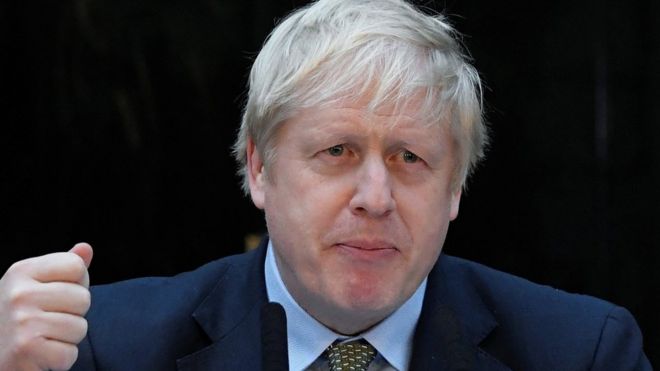Qasem Soleimani: Let British troops stay in Iraq, UK urges
No 10 has urged Iraq to allow UK
troops to stay in the country following the US assassination of Iranian
general Qasem Soleimani, saying their work is vital.
Soleimani was killed in a US drone strike in Iraq on Friday on the orders of President Donald Trump.Iraqi MPs responded to the strike by passing a non-binding resolution calling for an end to the foreign military presence in their country.
European leaders have called for all sides to show restraint.
Boris Johnson will chair a meeting of senior ministers later to discuss the deepening crisis and spoke to Iraqi Prime Minister Adel Abdul Mahdi by phone on Monday morning.
A Downing Street spokesperson said the leaders discussed the need to "deescalate tensions in the region" and "agreed to work together to find a diplomatic way forward".
"The prime minister underlined the UK's unwavering commitment to Iraq's stability and sovereignty and emphasised the importance of the continued fight against the shared threat from Daesh [the Islamic State group]".
About 400 British troops are stationed in Iraq, while the US has 5,200.
Caretaker Iraqi Prime Minister Mr Abdul Mahdi spoke in favour of US and other foreign forces leaving the country, although most Sunni and Kurdish MPs boycotted the vote.
A UK government spokesman said that coalition forces were in Iraq to protect its people and others from the Islamic State group, at the request of the Iraqi government.
Meanwhile, a British frigate and destroyer - HMS Montrose and HMS Defender - are to start accompanying UK-flagged ships through the Strait of Hormuz in the Gulf, where a tanker was seized by Iran last July.
In a joint statement issued on Sunday night, Mr Johnson, Germany's Angela Merkel and France's Emmanuel Macron said the current cycle of violence "must be stopped" and called on Iran to refrain from further violent action and proliferation.
The three leaders said they were concerned by the "negative" role Iran has played in the region but called on "all parties to exercise utmost restraint and responsibility".
With tensions rising in the region, Iran has responded by vowing revenge and announcing it will no longer abide by the restrictions in its 2015 nuclear deal.
The deal limited Iranian nuclear capacities in exchange for the lifting of economic sanctions.
A No 10 spokesman said Iran's announcement was "extremely concerning".
"It's in everyone's interest that the deal remains in place," he said, adding that "it makes the world safer".
"We've always said the nuclear deal is a reciprocal deal and in light of Iran's announcement we are urgently speaking to partners about next steps," the spokesman said.
In their statement, the three European leaders urged the country to "reverse all measures inconsistent with" the deal.
Mr Johnson said he spoke to President Trump on Sunday about the assassination of the Iranian general, who spearheaded the country's military operations in the Middle East as head of the elite Quds Force.
The White House said the two leaders had "reaffirmed the close alliance between the two countries".
https://www.bbc.com/news/uk-51004218





Post a Comment